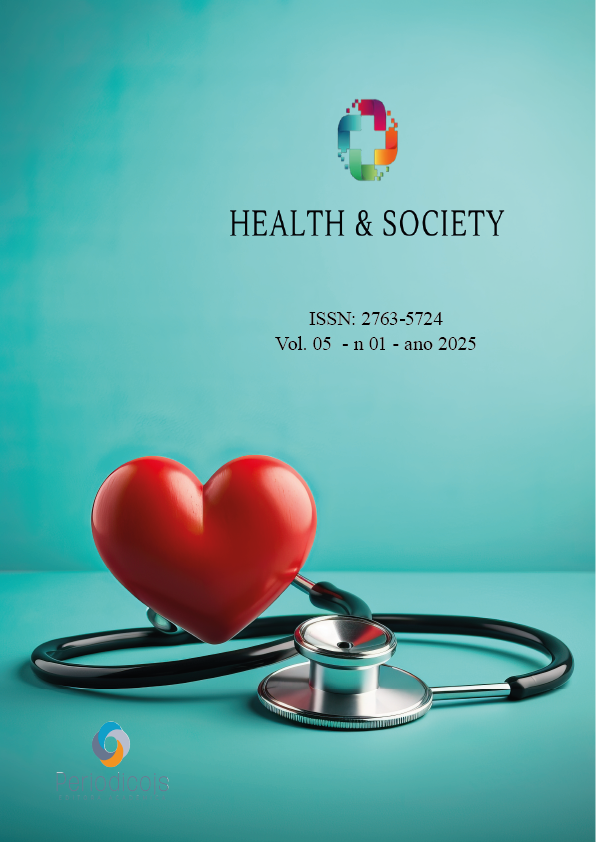Resumo
Psychedelics have emerged as a promising approach to treating mental disorders, challenging traditional paradigms in psychiatry. This study conducted an integrative literature review to investigate the advances, challenges, and implications of the therapeutic use of these substances, addressing the guiding question: “What are the current scientific perspectives on the use of psychedelics in the treatment of mental disorders?” The methodology followed the steps proposed by Mendes, Silveira, and Galvão (2008), covering the selection of articles from the LILACS, SCIELO, and MEDLINE databases. Descriptors in Portuguese and English, such as “Psychedelics,” “Mental Disorders,” and “Therapeutic Advances,” were used, and inclusion criteria favored recent and complete publications. The results indicated significant advances in the use of psychedelics, such as psilocybin, in treating resistant depression and MDMA for post-traumatic stress disorder (PTSD). Studies showed rapid and sustained improvements in depressive symptoms, while MDMA, combined with assisted psychotherapy, significantly reduced PTSD symptoms. These effects are attributed to the interaction with serotonergic receptors, promoting neuroplasticity and reorganization of neural networks, enabling profound psychological transformation. Despite the progress, ethical, legal, and operational challenges remain. Many psychedelics are still classified as high-risk substances, hindering their regulation and clinical use. Additionally, training specialized professionals and ensuring safety in therapeutic settings are crucial aspects to expand the application of these substances. In conclusion, psychedelics represent an innovative frontier in the treatment of mental disorders, with the potential to revolutionize psychiatry. However, overcoming regulatory and societal barriers, as well as investing in long-term research and professional training, is essential for their full integration into health systems.
Referências
CARHART-HARRIS, R. L.; BOLSTRIDGE, M.; RUCKER, J.; DAY, C. M.; ERRITZOE, D.; KAELEN, M. et al. Psilocybin with psychological support for treatment-resistant depression: six-month follow-up. Psychopharmacology (Berl), v. 235, n. 2, p. 399-408, 2018.
MITHOEFER, M. C.; FEDUCCIA, A. A.; JEROME, L.; MITHOEFER, A.; WAGNER, M.; WALSH, Z. et al. MDMA-assisted psychotherapy for severe PTSD: a randomized, double-blind, placebo-controlled phase 3 study. Nature Medicine, v. 27, n. 5, p. 899-907, 2019.
NICHOLS, D. E. Psychedelics. Pharmacological Reviews, v. 68, n. 2, p. 264-355, 2016.
NUTT, D.; KING, L. A.; NICHOLS, D. E. Effects of Schedule I drug laws on neuroscience research and treatment innovation. Nature Reviews Neuroscience, v. 21, n. 4, p. 229-237, 2020.
JOHNSON, M. W.; RICHARDS, W. A.; GRIFFITHS, R. R. Human hallucinogen research: guidelines for safety. Journal of Psychopharmacology, v. 22, n. 6, p. 603-620, 2008.
DOBLIN, R.; GREER, G.; HOLLAND, J.; JEROME, L.; MITHOEFER, M. C.; SESSA, B. et al. A reconsideration of the psychedelics and their role in psychiatry. Journal of Psychopharmacology, v. 33, n. 9, p. 967-975, 2019.
SCHENBERG, E. E. Psychedelic-assisted psychotherapy: a paradigm shift in psychiatric research and development. Frontiers in Pharmacology, v. 11, p. 33, 2020.
LABATE, B. C.; CAVNAR, C. Ayahuasca healing beyond the Amazon: the globalization of a traditional indigenous medicine. Springer, 2014.

Este trabalho está licenciado sob uma licença Creative Commons Attribution 4.0 International License.
Copyright (c) 2025 Eduardo d’Avila Lins Lacerda, Bianca Medeiros Ferraz da Nóbrega, Yasmin Mesquita Dias Franca Gadelha, Lara Ribeiro Fernandes Teixeira, Manolo Altieri Espinar, Bruna Trigueiro Carlini, Gabriel Santa Cruz Lins, Ana Rafaela Souza dos Santos Lima, Izabela Maria Medeiros Azevedo, Paulo Heinrich Soares Bomtempo





